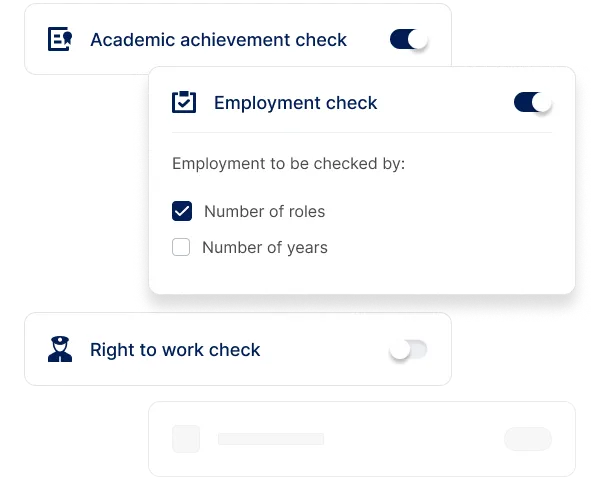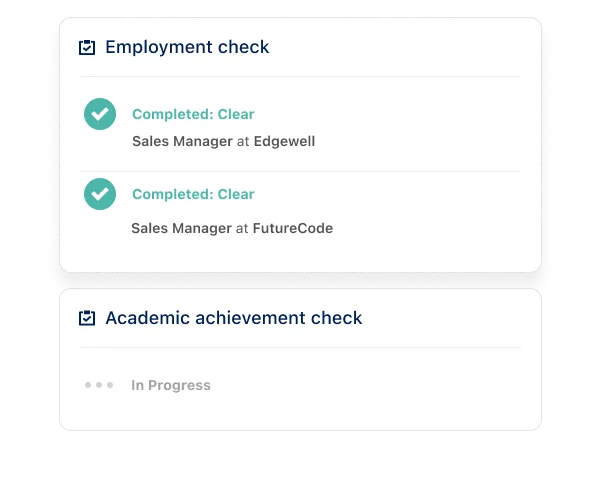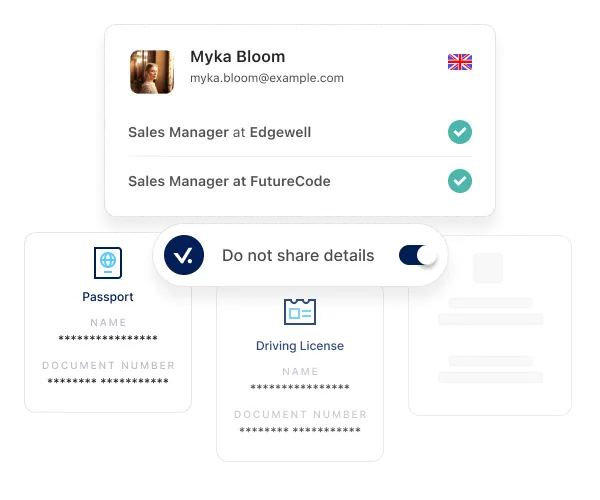Recognised by the UK Government as the standard for pre-employment screening for those with access to government assets

Baseline Personnel Security Standard (BPSS)
The UK Government security standard for screening of people who may have access to government assets
A BPSS check consists of:
- UK DBS Check (Basic level)
- UK Online Identity Check
- Right To Work in the UK
- 3 years of Employment History
- Social Media Check
- 2 Reference Checks
Trusted by the world's best workplaces






PROVEN
.png)
.png)




and Loved by reviewers
Easy
Reduce risk
No lock-in
Global checks
24/7 support
Faster time to hire
With our award-winning software, we’re the number one choice for leading brands and workplaces all over the world.
Unfortunately, fraudulent identity documents are not uncommon. Fake visas, passports and ID cards can all be obtained to support a candidate’s application to work.
As part of our BPSS verification, Veremark’s check process investigates possible fraud, discrepancies in records, a DBS (disclosure & barring service) and other risks.
We promise accuracy and speed - so you can make informed decisions when you next hire.
How it works



Related checks
FAQs
An employer should request BPSS checks to be conducted for an applicant.
Normally, the turnaround time for a BPSS check is around 7-10 working days.
A BPSS check doesn’t have an official expiry date. However, the information provided is only valid and accurate at the time the checks were carried out. Should an employee move to a new company, elements such as a Right to Work check will need to be conducted again, as it’s a legal requirement.
A DBS check is not the same as a Background Check (BPSS), however a BPSS check should contain a DBS check.
A BPSS check consists of:
- UK Right to Work Check
- UK Online Identity Check
- Basic DBS Check
- 3 years of Employment History
The Baseline Personnel Security Standard (BPSS) is recognised by the government as the standard for pre-employment screening for those with access to government assets; some of these roles may include civil servants, members of the armed forces, and government contractors. It is not a formal security clearance and does not guarantee that someone will be granted full clearance. However, its rigorous and consistent application underpins the national security vetting process.
Transform your hiring process
Request a discovery session with one of our background screening experts today.






